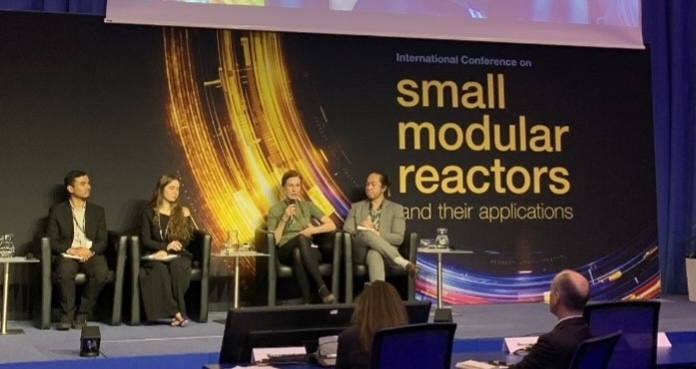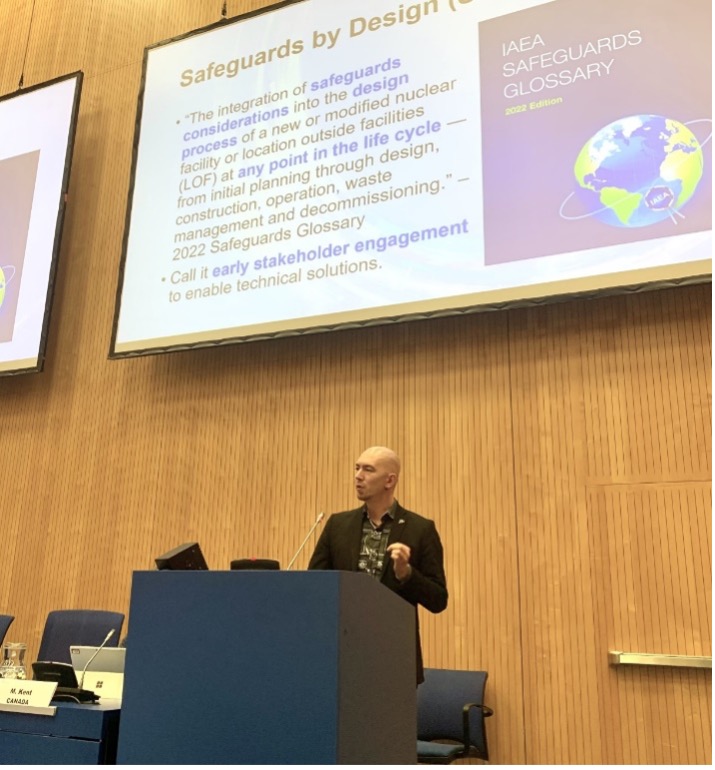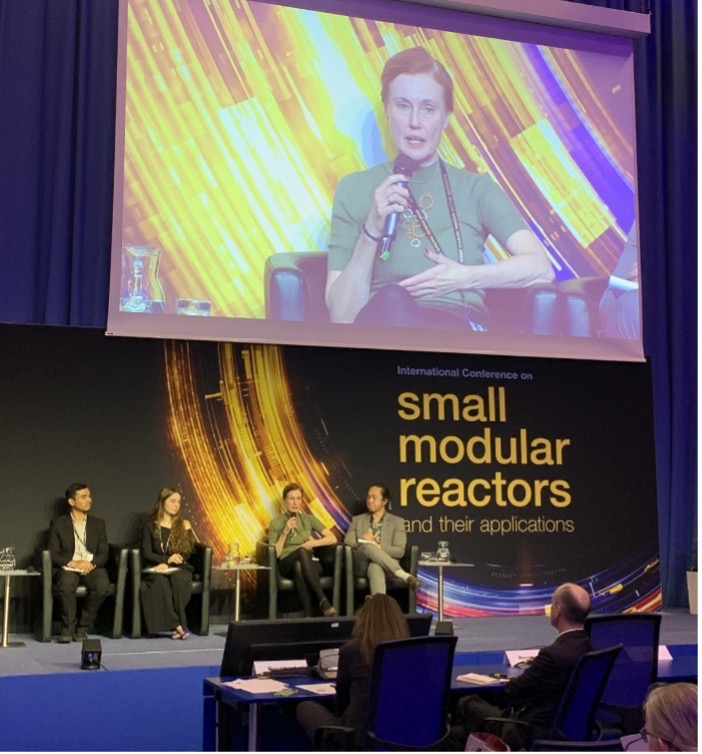
The International Atomic Energy Agency (IAEA) convened the inaugural International Conference on Small Modular Reactors and their Applications from 21 to 25 October 2024 in Vienna, Austria. VCDNP Senior Research Associate Noah Mayhew and Senior Fellow Ingrid Kirsten presented expert analyses on two critical aspects of SMR deployment: the necessity of safeguards by design (SBD) for small modular and other advanced reactors, and the importance of stakeholder engagement in the Global South.

At the conference, Senior Research Associate Noah Mayhew underscored the importance of SBD for small modular reactors. Drawing on his paper Safeguards by Design and Advanced Reactors: Overcoming the Catch-22 to Implementation, Mr. Mayhew explored how SBD - the voluntary practice of integrating safeguards into the entire lifecycle of a nuclear facility - can ensure that SMRs, once commercially deployable, can be safeguarded effectively and efficiently without incurring costly retrofits or delays.
Many SMR developers, particularly start-ups, are either unaware of or do not prioritise safeguards, focusing more on safety and, to some extent, security. This lack of engagement poses risks as SMRs near deployment, especially given the complexities of safeguarding new designs that may involve novel fuel cycles or export models. While the IAEA promotes SBD, it lacks the mandate to enforce it, relying on industry and Member States to take the lead. However, designers often look back to the IAEA for approval of their designs, which the Agency cannot formally provide, creating a self-reinforcing cycle where no single entity assumes full responsibility for SBD.
This challenge is compounded by the fact that many SMRs are being developed in nuclear-weapon States, which are not obligated to put all of their nuclear activities and facilities under safeguards. This limits the IAEA’s early access to design information, risking deployment complications if safeguards are not integrated early.
To address these barriers, Mr. Mayhew proposed several strategies: educating designers on the economic benefits of SBD to encourage early integration, leveraging non-governmental organisations to facilitate dialogue between SMR designers, potential end users, and the IAEA, and urging national governments to incorporate SBD requirements into the reactor licensing process. He also recommended raising discussions about SBD in the IAEA policy-making organs and called for increased financial support to strengthen the IAEA’s SBD initiatives.
Senior Fellow Ingrid Kirsten emphasised the potential of nuclear power, particularly SMRs, to alleviate energy poverty in the Global South. Citing a paper she co-authored with VCDNP Senior Research Associate Anthony Stott, The Value of Early Engagement between Stakeholders to Ensure Successful SMR Deployment in the Global South, Ms. Kirsten promoted early engagement between all stakeholders to address some of the key challenges to SMR deployment in developing regions.

Early dialogue between SMR developers and potential end users in the Global South would promote reactor designs that include security, non-proliferation, and safeguards features which would reduce the regulatory burden for nuclear newcomer countries.
Another serious challenge to the effective deployment of SMRs is the lack of financing. Engaging international financial institutions, agencies, and philanthropies involved in funding sustainable development and climate action would be essential to ensuring that countries in the Global South benefit from SMR applications. Ms. Kirsten pointed out that while billions of dollars are allocated annually to advancing sustainable development and climate action, little to none of these funds are allocated to nuclear applications. She emphasised that this was the case for both nuclear power and non-power applications and that increased investment in nuclear medicine and agriculture could meaningfully support climate and development objectives, and pave the way for nuclear power in developing countries.
Civil society can play an important role in facilitating early stakeholder engagement as demonstrated by the VCDNP’s recent multi-stakeholder dialogue in South Africa, organised in collaboration with Wilton Park and other partners. The event brought together policy-makers and regulators from 11 African countries, SMR developers, and civil society organisations, including the Novo Nordisk Foundation, to discuss regional energy needs, regulatory harmonisation, and financing options for SMR deployment.
Ms. Kirsten also highlighted her recent participation in the Oppenheimer Dialogue Funder Roundtable on the margins of the Climate Week in New York City. The meeting convened climate philanthropies to consider ways to pursue a collective impact strategy for climate-focused philanthropy to accelerate the global deployment of nuclear power. According to Ms. Kirsten, early engagement between all stakeholders will be essential to fostering a secure and sustainable nuclear future.



